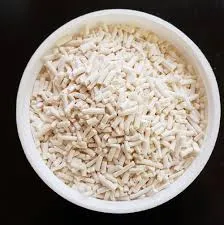
preservative 234
Understanding Preservative E234 A Comprehensive Overview
Preservatives play a crucial role in the food industry, ensuring the longevity and safety of products we consume daily. Among the myriad of preservatives used, E234, more commonly known as Nisin, stands out as a natural option with antimicrobial properties. This article delves into the characteristics, applications, and safety of E234.
Understanding Preservative E234 A Comprehensive Overview
One of the key advantages of using E234 is its natural origin. In an era where consumers are increasingly leaning towards natural and fewer chemical additives, Nisin offers a reassuring option. It is also favored over synthetic preservatives, as it does not compromise the sensory attributes of food products, such as taste and odor. Additionally, Nisin can be used in conjunction with other preservation techniques, such as refrigeration, to provide a comprehensive approach to food safety.
preservative 234

The efficacy of E234 is attributed to its unique mode of action. Nisin works by disrupting the cell membrane of target bacteria, leading to cell death. This mechanism not only helps in preserving food but also reduces the risk of foodborne illness—a significant concern for consumers and manufacturers alike. Its effectiveness has been documented in numerous studies, showcasing its potential to extend the shelf life of products without relying on artificial preservatives.
In terms of safety, Nisin has been evaluated by various health agencies around the world, including the Food and Drug Administration (FDA) and the European Food Safety Authority (EFSA). These organizations have deemed it safe for consumption within specified limits, reinforcing its acceptance in the food industry. However, like any additive, it is essential to use Nisin within regulatory guidelines to ensure consumer safety.
Despite its benefits, some challenges are associated with using E234. Variability in Nisin sensitivity among different bacterial strains means that while it can effectively combat specific pathogens, it may be less effective against others. As such, food manufacturers must conduct thorough testing to ensure its effectiveness in their products.
In conclusion, E234 (Nisin) serves as a valuable preservative in the food industry, providing natural, effective, and safe options for extending shelf life and enhancing food safety. As consumer demand for natural products continues to rise, the role of preservatives like Nisin will likely grow, highlighting the importance of understanding their properties and applications. Whether in a creamy cheese or a savory canned dish, Nisin is an unsung hero working behind the scenes to keep our food safe and delicious.
-
Nitrile Rubber Honoring Strict Production StandardsNewsAug.22,2025
-
Aspartame Ingredients Honoring Food Safety ValuesNewsAug.22,2025
-
Fertilizer for Balanced Plant NutritionNewsAug.22,2025
-
Cyanide Gold Processing with High Purity AdditivesNewsAug.22,2025
-
Formic Acid in Textile Dyeing ApplicationsNewsAug.22,2025
-
Aluminum Hydroxide Gel in Skincare ProductsNewsAug.22,2025
-
Regulatory Compliance for Global Mining Chemicals UseNewsAug.12,2025
Hebei Tenger Chemical Technology Co., Ltd. focuses on the chemical industry and is committed to the export service of chemical raw materials.
-

view more DiethanolisopropanolamineIn the ever-growing field of chemical solutions, diethanolisopropanolamine (DEIPA) stands out as a versatile and important compound. Due to its unique chemical structure and properties, DEIPA is of interest to various industries including construction, personal care, and agriculture. -

view more TriisopropanolamineTriisopropanolamine (TIPA) alkanol amine substance, is a kind of alcohol amine compound with amino and alcohol hydroxyl, and because of its molecules contains both amino and hydroxyl. -

view more Tetramethyl Thiuram DisulfideTetramethyl thiuram disulfide, also known as TMTD, is a white to light-yellow powder with a distinct sulfur-like odor. It is soluble in organic solvents such as benzene, acetone, and ethyl acetate, making it highly versatile for use in different formulations. TMTD is known for its excellent vulcanization acceleration properties, which makes it a key ingredient in the production of rubber products. Additionally, it acts as an effective fungicide and bactericide, making it valuable in agricultural applications. Its high purity and stability ensure consistent performance, making it a preferred choice for manufacturers across various industries.





